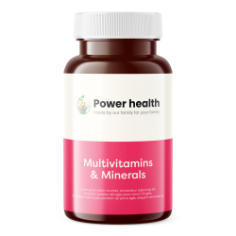What is vitamin D?
Important for bone health and also called the 'sunshine vitamin' due to its ability to be made from sunlight on your skin, vitamin D is an important vitamin in maintaining your body's health.
Vitamin D helps to regulate the amount of calcium and phosphate in the body and it's needed to keep bones, teeth and muscles healthy.
How does the sun create vitamin D?
When you expose your skin to sunlight, vitamin D is made from the cholesterol in your skin cells and the enrgy provided by the sun results in the synthesis from cholesterol to vitamin D.
Of course, there are also health issues with over-exposure to sunlight, so bear that in mind in your hunt for more vitamin D...

What are the health issues of low vitamin D levels?
Like with many vitamins, there can be issues with not only very high levels in the body, but also low levels and deficiencies.
Health issues caused by insufficient vitamin D:
- Bone pain
- Fatique
- Jopint deformities
- Weakness in muscles
- Osteoperosis
Good sources of vitamin D
It's fair to say that between April and September, most of us should be able to get all the vitamin D we need from natural sunlight. There may, however, be reasons why you might not be able to take advantage of this, such as:
- people that are not often outdoors – if they're frail or housebound
- people that are in an institution like a care home
- people that wear clothes that cover up most of their skin when outdoors
The best non-sun related sources of vitamin D are:
- red meat
- liver
- egg yolk
- some fats, spreads and fortified cereals
- oily fish
Health benefits of vitamin D
To build immunity - fighting off harmful bacteria and viruses in particular; it has been found that vitamin D can reduce the risk of some respiratory infections.
Supporting oral health - related to a redcution in tooth decay from better absorption of calcium.
Treating hypertension - in the treatment of high blood pressure, short-term vitamin D deficiency can increase blood pressure.
Help with weight loss - in conjunction with a lower calorie diest, vitamin D supplements have been shown to assist with weight loss.
Help battle fatique - there has been shown to be a significant link to depression and fatique and low levels of vitamin D. (we all feel more tired as the Autumn/Winter months draw in and we have less sunlight)
Can I take too much vitamin D?
Taking high levels of any vitamin supplement over an extended time period can be damaging.
In this case, too much vitamin D can cause a build up of calcium which can weaken bones and damage the heart and kidneys
For the level of vitamin D supplements you should take, always read the directions carefully and stick to recommended dosage.
Responses to vitamin D intake if you have a low level can be seen in a matter of days so using the natural sources of sunlight and the foods mentioned above may give you enough, but, supplementation is always an option as well.












